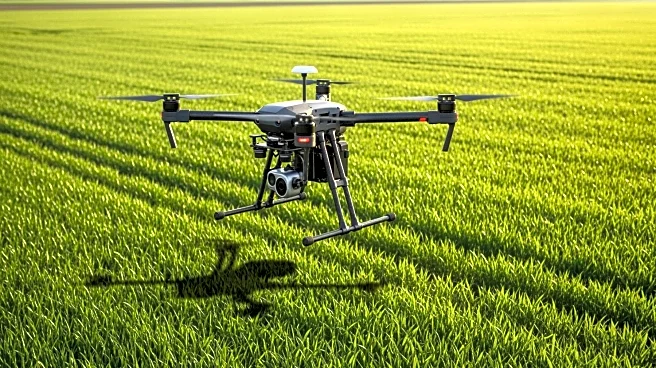What's Happening?
Farmers across Europe are adopting integrated pest management (IPM) to reduce pesticide use while maintaining crop health. Supported by EU-funded researchers, IPM combines techniques like crop rotation and biological controls to protect crops without
relying heavily on chemicals. The IPMWORKS initiative has created a network of pioneering farmers who share experiences and solutions to promote sustainable farming practices.
Why It's Important?
The adoption of IPM represents a shift towards more sustainable agriculture, reducing reliance on chemical pesticides that pose risks to human health and the environment. By working with natural processes, farmers can protect crops while minimizing pollution and enhancing biodiversity. This approach aligns with global efforts to promote sustainable development and environmental stewardship.
What's Next?
The expansion of IPM practices could lead to significant reductions in pesticide use, benefiting both society and the environment. Financial incentives and shifting perceptions may encourage more farmers to adopt IPM, potentially leading to widespread changes in farming practices. The initiative's success could inspire similar efforts in other regions, promoting sustainable agriculture on a global scale.
Beyond the Headlines
The adoption of IPM raises ethical considerations regarding the impact on traditional farming practices and the need for new skill sets among farmers. The approach offers an economic opportunity for farmers to reduce costs and improve pest control, contributing to sustainable agriculture. The initiative's success highlights the potential for collaborative efforts to drive positive change in the agricultural sector.















